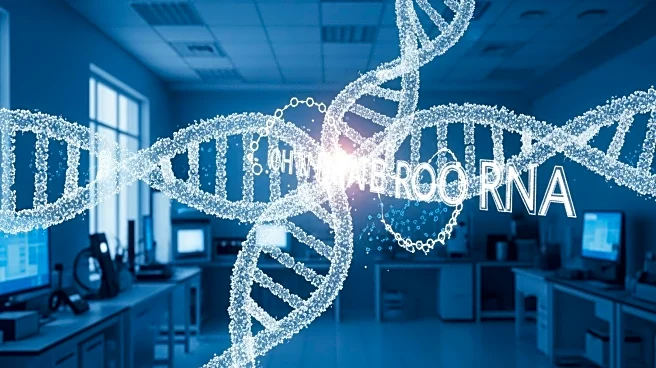What's Happening?
Tevard Biosciences has presented new preclinical data demonstrating the effectiveness of its tRNA-based therapies in restoring full-length functional proteins in models of Duchenne muscular dystrophy (DMD) and dilated cardiomyopathy caused by titin truncations (DCM-TTNtv). The data shows an average 70% restoration of wild-type dystrophin protein in DMD models using suppressor tRNAs, indicating potential for significant clinical outcomes at lower doses. The technology also shows dose-dependent transduction, protein rescue, and functional improvement without detectable toxicity or off-target effects.
Why It's Important?
Tevard Biosciences' advancements in tRNA-based therapies could revolutionize the treatment of genetic diseases, offering new hope for patients with conditions like DMD and DCM-TTNtv. The ability to restore functional proteins at lower doses may lead to safer and more effective treatments, potentially improving the quality of life for affected individuals. This development highlights the growing importance of genetic medicine and the potential for innovative therapies to address previously untreatable conditions.
Beyond the Headlines
The success of Tevard's suppressor tRNA platform underscores the potential for broader applications across various genetic diseases, including heart disease, muscular dystrophies, and neurological disorders. The company's approach, founded by scientists and entrepreneurs with personal connections to rare diseases, reflects a commitment to advancing genetic medicine and addressing unmet medical needs.









